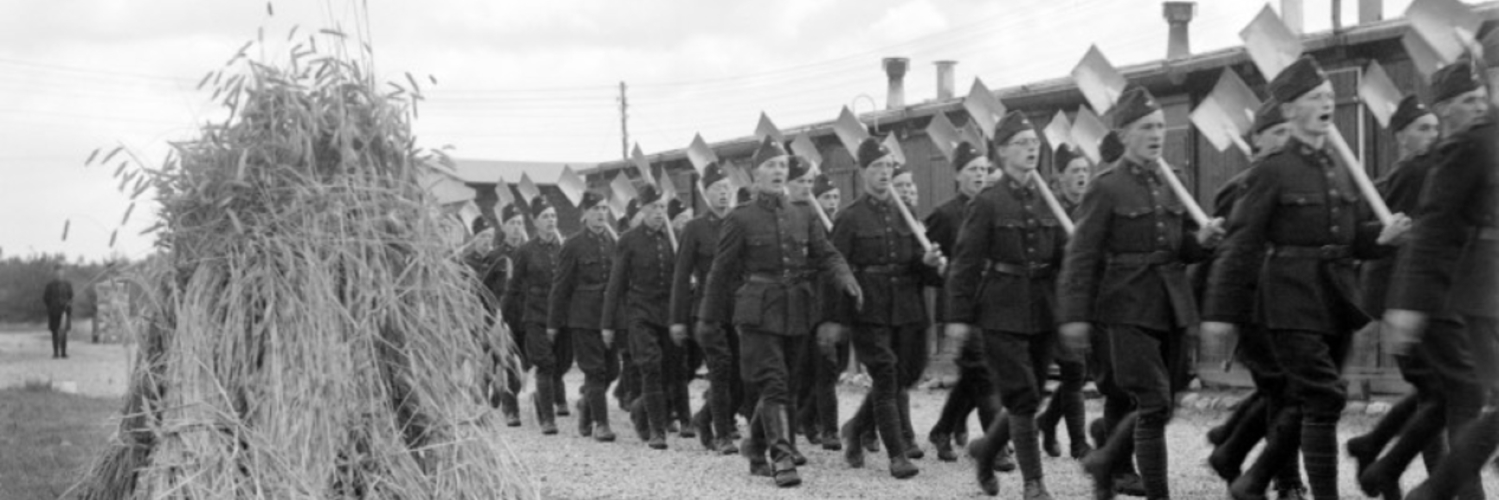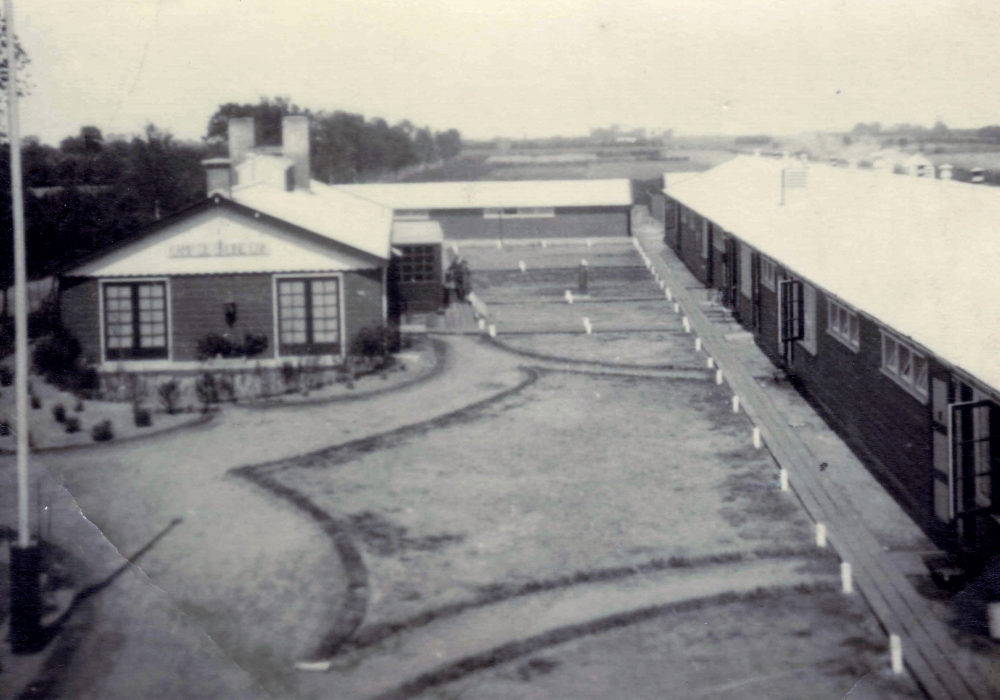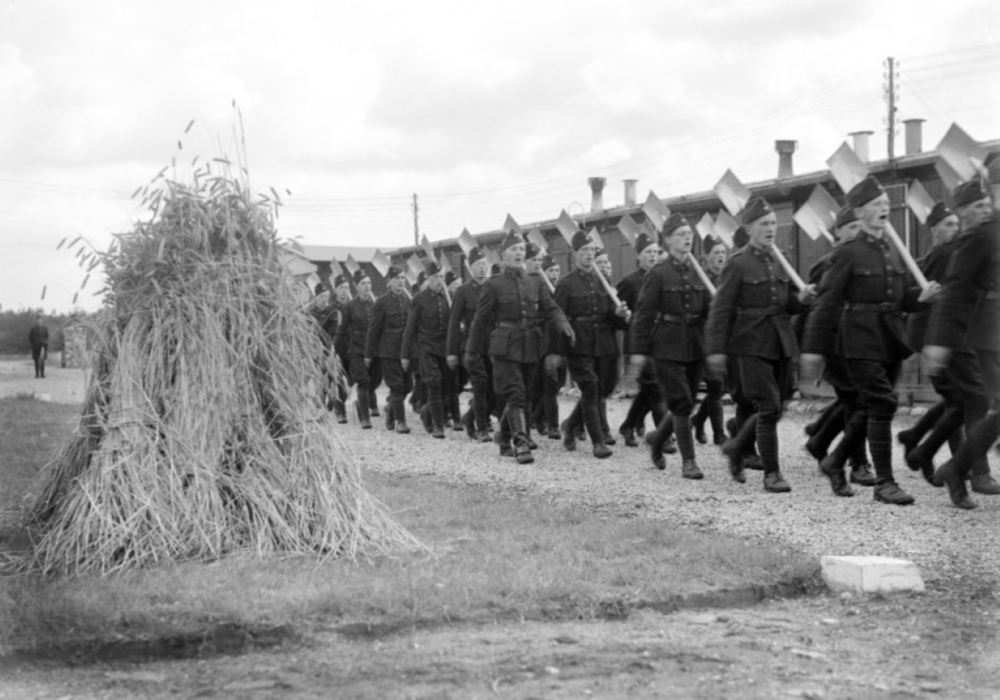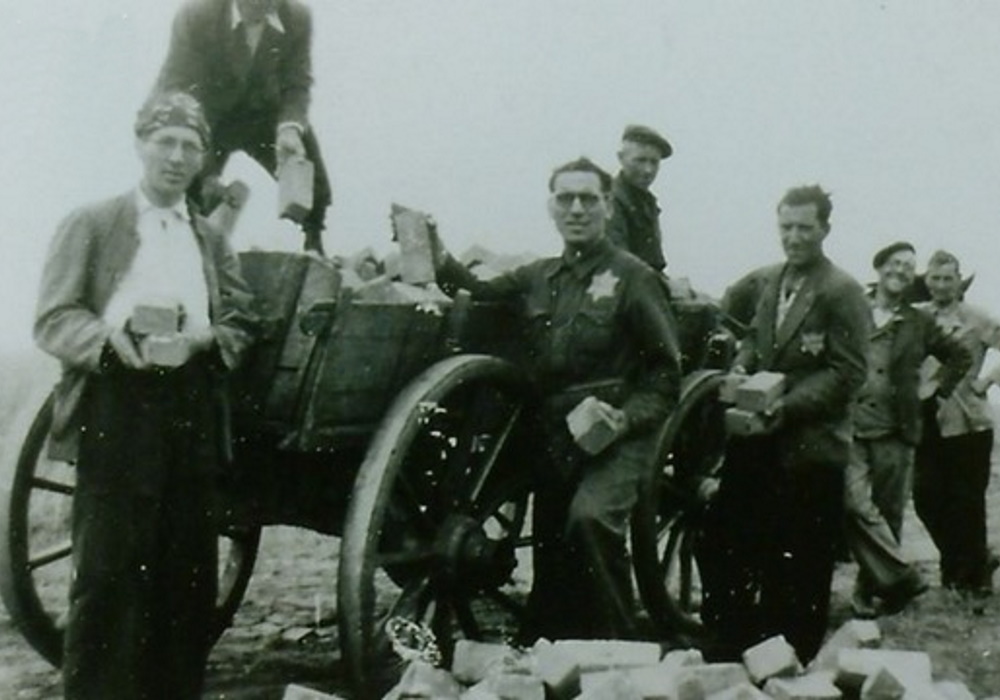Work camp De Bruine Enk
The barracks of the Bruine Enk work camp were built in September 1940 on the Hullerweg in Nunspeet. A newspaper wrote: ‘The barracks construction at the Bruine Eng farm is nearing completion. (…) The buildings are in good order and can serve excellently for long-term stays.’
It is not clear when the first Jewish forced laborers ended up in this work camp. The first written sources date from September 1942. On September 5, Herman van Campen wrote to his good friend Ap: ‘Here my main task is to dig the ground 60 cm deep in a now “wild and empty” field, only provided with tree stumps, as a result of a forest fire. In terms of groundwork it is light, but I must say that it was still quite hard for me. On the other hand, you learn by doing, and now that I am getting the hang of it, it is considerably easier for me.
With 1½ hour walks there and back, that takes 12 hours of the day. Everything here is arranged in a rather military manner (and that is becoming even more so), so that there is not much time left for more dignified work.’ Salo and Frans Urbach wrote on 9 September 1942: ‘Tine received your letter, and were happy to receive something from you too. We are doing well and the work is not too bad, it is not what we are used to, but you get used to it quickly. The weather is always good here, only we are all burned here, because we work naked (…).’
Jewish period
The first written evidence of the use of the camp for interning Jews dates from September 1942. During that period, the camp was actually used as a buffer for Camp Westerbork. Jewish men were used as forced laborers at the Heidemij during that period. According to the diary of a resident of Nunspeet, a certain Van Heerde, some sixty Jews were in the camp as forced laborers.
During the night of October 2 to 3, 1942 (Yom Kippur), all Jewish men from the labor camps, including those from Camp De Bruine Enk, were transported to Camp Westerbork. On October 3, Van Heerde wrote in his diary: The municipal newspaper urgently warns against giving food and such to Jews in the camp. Incidentally, they were transported today. It is suspected that they were going to Poland. The Jew Herman van Campen had written in a postcard on October 2 that he would be leaving for “another camp in Holland” the next day.
The camp residents arrived and left via Nunspeet Station. Little is known about the use of the camp after the departure of the Jews. There was also a work camp at the Ronde Huis /Toeristische weg and Eperweg.




